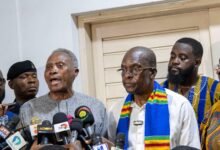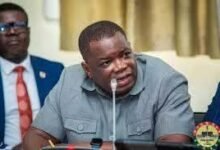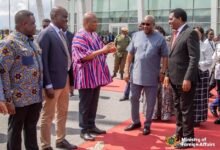
The National Commission for Civic Education (NCCE) has expressed concern over some chiefs dabbling in partisan politics by endorsing political parties and their candidates.
According to the Commission “this is unconstitutional and must be condemned by all well-meaning Ghanaians.”
Addressing the media in Accra on Tuesday, the Chairperson of the NCCE, Ms Josephine Nkrumah noted that despite the Commission’s recognition of the role of traditional leaders, the Constitution demanded that Chiefs do not dabble in politics.
She stated that, Article 276, Section (2) of the 1992 Constitution provides that, “A chief shall not take part in active politics; and any chief wishing to do so and seeking election to Parliament shall abdicate his stool or skin.”
She remarked that, the chieftaincy institution played a pivotal role during political crisis, and implored chiefs to continue to play their roles with all the respect they deserve.”
“The NCCE prays our chiefs to act with tact and maturity in order not to sacrifice the sanctity of their offices, eroding their respect, role as agents of unity and as credible mediators in political impasse and conflict,” Ms Nkrumah, said.
Further, she indicated that, the entire citizenry should focus on activities that would ignite national cohesion and oneness rather than activities that could disrupt the unity of the country.
Ms Nkrumah also cautioned religious leaders to be mindful of their utterances and refrain from making pronouncements that would create violence and disturb the peace.
On her part, the Ms Kathleen Addy, Deputy Chairman, Finance and Administration of the NCCE, advised religious leaders to desist from dabbling in active politics, stressing that, building a country required issues as relevant as the laws.
Ms Addy pointed out that, although the laws of the country played a key role in nation building, there were ethical ways of life which guided daily activities and had to be adhered to by the entire populace.
She added that, by the virtue of the roles they played the activites of religious leaders influence their followers immensely, therefore they ought to be measured, especially through their prophetic pronouncements.
She then urged them to use their influence “in a way that adds and does not subtract, in a way that adds to the peace, in a way that promotes the democracy, in a way that promotes peaceful existence among all groups in the country,” she said.
BY FRANCIS NTOW AND ABIGAIL ARTHUR







